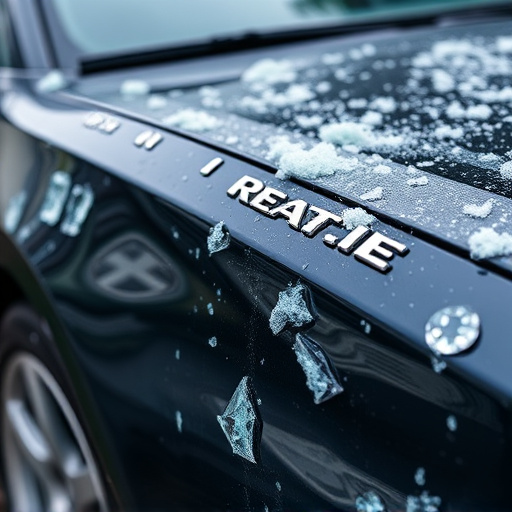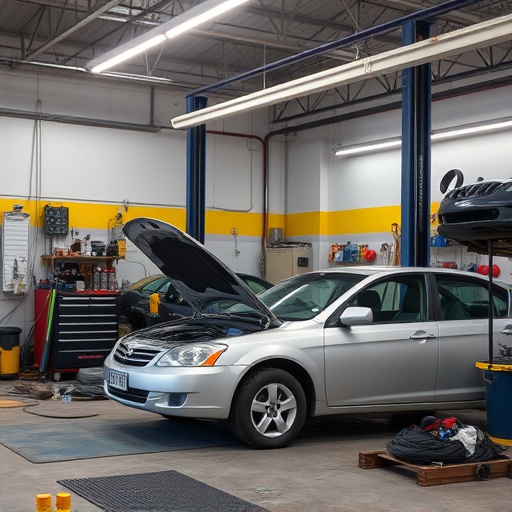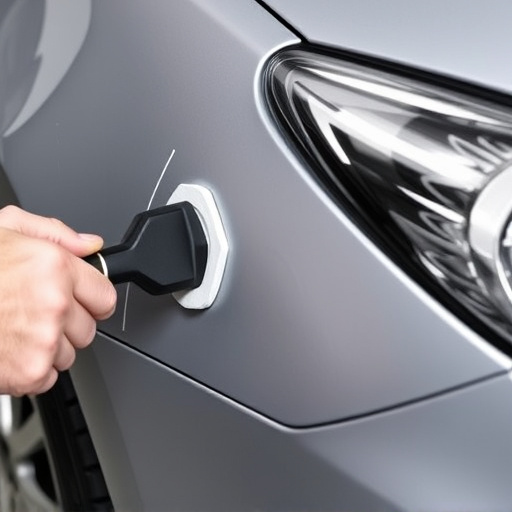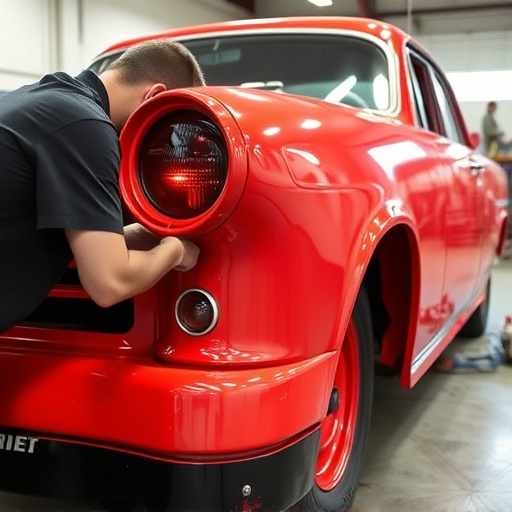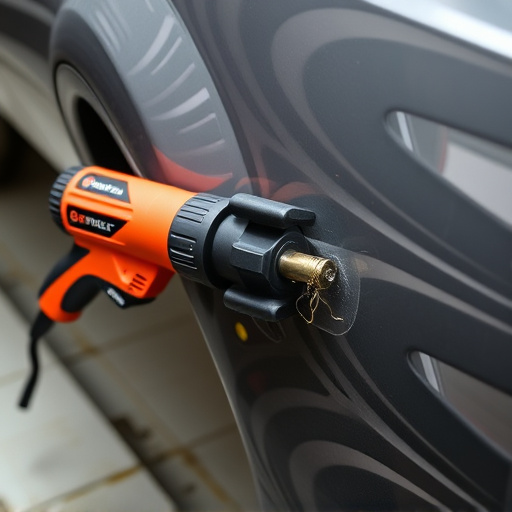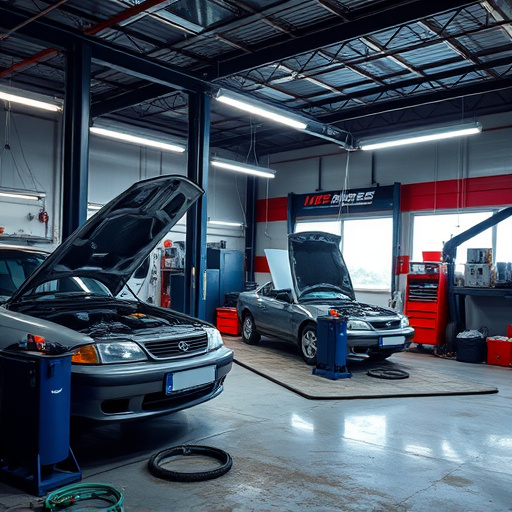ANSI auto glass safety standards boost industry quality and performance, ensuring raw materials to finished products meet rigorous criteria. Compliant auto glass enhances structural integrity, reduces secondary injuries, and offers peace of mind. Auto body repair centers prioritize ANSI compliance for precise installation and scratch repair. Adherence to these guidelines streamlines processes, improves efficiency, and leads to customer satisfaction, preserving vehicle original design. Meeting ANSI standards is vital for automotive service providers, demonstrating commitment to vehicle repair and driver protection.
In today’s automotive industry, ensuring auto glass safety is paramount. ANSI (American National Standards Institute) safety compliance offers a comprehensive framework that enhances vehicle security and passenger protection. This article delves into the significant advantages of adhering to ANSI standards, focusing on three key areas: enhancing auto glass safety, providing benefits for installers, and boosting quality and customer trust. By understanding these aspects, automotive professionals can navigate the industry with confidence, ensuring top-notch services and products.
- Enhancing Auto Glass Safety with ANSI Standards
- Compliance Benefits for Auto Glass Installers
- The Impact on Quality and Customer Trust
Enhancing Auto Glass Safety with ANSI Standards
ANSI safety standards play a pivotal role in enhancing auto glass safety, setting benchmarks for quality and performance across the industry. These rigorous guidelines ensure that every component, from raw materials to finished products, meets stringent criteria, thereby reducing the risk of fractures, shattering, or other catastrophic failures under various conditions.
Compliance with ANSI standards not only bolsters structural integrity but also offers peace of mind to consumers. In the event of an accident, properly compliant auto glass is less likely to contribute to secondary injuries caused by debris or broken shards. Moreover, many auto body repair and collision centers prioritize ANSI compliance as a crucial aspect of their service, incorporating advanced technologies and techniques for precise installation and seamless repairs, including effective scratch repair solutions.
Compliance Benefits for Auto Glass Installers
Auto Glass Installers benefit significantly from ANSI safety compliance, which establishes critical standards for vehicle glass safety. Adhering to these standards ensures that the installers work with high-quality materials and tools, minimizing risks associated with sharp edges and debris during installation or replacement. This not only protects the technicians but also guarantees a more secure fit, enhancing overall vehicle safety.
By adhering to ANSI guidelines, auto glass installers can streamline their processes, reduce waste, and improve efficiency in car collision repair, frame straightening, and vehicle paint repair. The standards ensure that every piece of glass is precisely measured, cut, and fitted, leading to better structural integrity and a more aesthetically pleasing finish. This level of precision and safety is vital for maintaining the vehicle’s original design and ensuring customer satisfaction.
The Impact on Quality and Customer Trust
Adhering to ANSI safety compliance standards for auto glass is paramount for any automotive service provider. It significantly enhances the quality of their work, ensuring that every replacement or repair meets stringent criteria for strength and durability. This commitment to excellence instills trust among customers, who value safety and reliability in their vehicles.
When shops meet these auto glass safety standards, they demonstrate a dedication to not just fixing cars but protecting their drivers. This is especially crucial in the event of a car collision repair or tire services, where the integrity of auto glass can mean the difference between a minor inconvenience and a serious safety hazard. Even for luxury vehicle repairs, where customers expect top-tier service, adhering to ANSI standards reinforces the reputation of the shop and ensures customer satisfaction.
ANSI safety compliance is a cornerstone of enhancing auto glass security, offering tangible benefits to both installers and consumers. By adhering to these rigorous standards, auto glass professionals can ensure superior quality work, build customer trust, and mitigate potential risks. Embracing ANSI guidelines is not just a regulatory requirement but a strategic move towards fostering a safer driving experience for all.
